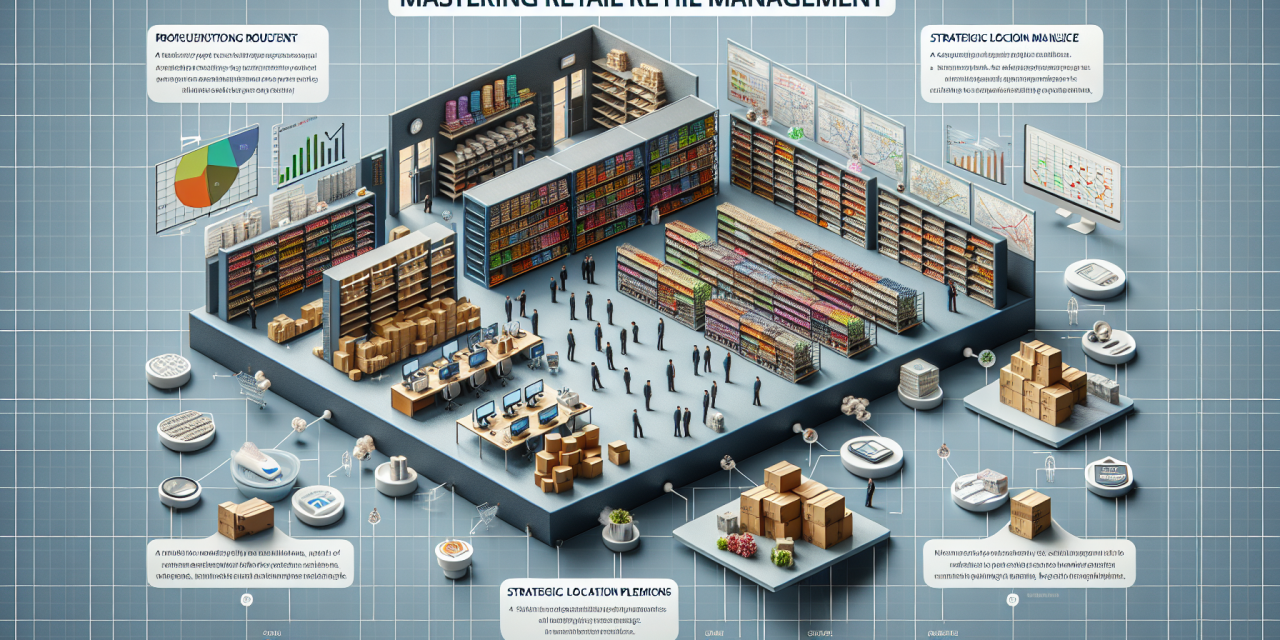Table of Contents
- 1. Introduction
- 2. Importance of Retail Management
- 3. Understanding Distribution
- 4. Key Areas of Focus in Retail Management Training
- 5. Effective Retail and Distribution Strategies
- 6. Challenges in Retail Management
- 7. Career Opportunities in Retail Management and Distribution
- 8. FAQs
- 9. Conclusion
1. Introduction
Welcome to the exciting world of retail management and distribution! In today’s fast-paced marketplace, mastering the art of managing retail operations effectively can significantly impact a business’s overall success. By focusing on retail management and distribution, professionals can drive profitability, enhance customer satisfaction, and improve overall efficiency. In this post, we will explore the crucial aspects of these fields and highlight the benefits of gaining in-depth knowledge and skills in retail management and distribution.
2. Importance of Retail Management
Retail management plays a pivotal role in ensuring that businesses can cater to the diverse needs of customers while meeting their expectations. This discipline involves overseeing all aspects of retail operations, from inventory management to sales strategies. A strong emphasis on retail management helps organizations to:
- Enhance customer experience and loyalty through effective service.
- Optimize inventory levels to reduce costs and improve cash flow.
- Implement targeted marketing strategies that yield results.
- Foster employee engagement and productivity.
By understanding the importance of retail management, professionals can contribute significantly to the growth and direction of their organizations.
3. Understanding Distribution
Distribution entails the processes involved in delivering products from the manufacturer to the end consumer. It encompasses the logistics of storing, inventory management, and the shipping routes utilized. A solid distribution strategy ensures that products reach consumers in a timely and efficient manner, which is crucial for maintaining customer satisfaction.
Furthermore, the significance of an effective distribution network cannot be overstated. In a competitive market, customers demand timely delivery and product availability. Therefore, professionals equipped with the knowledge of modern distribution channels and logistics management can drive greater efficiency and responsiveness within their organizations.
4. Key Areas of Focus in Retail Management Training
4.1 Inventory Control
Inventory control remains a fundamental aspect of retail management. Understanding how to manage inventory effectively can help minimize waste and meet customer demand promptly. Professionals learn various inventory management techniques, such as Just-in-Time (JIT) inventory systems, which offer a competitive edge.
4.2 Customer Relationship Management (CRM)
Customer relationship management systems allow businesses to track customer interactions, preferences, and feedback. Emphasizing the importance of CRM helps organizations enhance their marketing efforts and develop stronger relationships with their customers.
4.3 Sales Techniques
Effective sales techniques remain a cornerstone of successful retail management. Understanding how to engage customers and close sales effectively can dramatically influence a company’s bottom line. Professionals receive training on a variety of sales strategies that can be applied across different retail sectors.
4.4 Visual Merchandising and Store Layout
Visual merchandising is essential in drawing customers into a store and encouraging them to purchase products. Learning design principles, such as store layout and product placement, provides valuable insights into maximizing sales opportunities.
5. Effective Retail and Distribution Strategies
To thrive in retail management, organizations must implement effective strategies that align with their goals and market dynamics. Here are some strategies to consider:
5.1 Omnichannel Retailing
In today’s digital age, customers engage with brands across multiple channels. Fostering a seamless shopping experience, whether online or in-store, allows businesses to meet customer expectations and maximize sales.
5.2 Data-Driven Decision Making
Utilizing data analytics has become an essential practice in retail management. By collecting and analyzing customer data, organizations can make informed decisions regarding inventory, marketing, and sales strategies.
6. Challenges in Retail Management
While retail management presents numerous opportunities, it also poses several challenges. Understanding these challenges allows professionals to develop effective solutions. Common challenges include:
- Managing supply chain complexities as global markets become increasingly interconnected.
- Adapting to changing consumer preferences and trends.
- Sustaining competitive advantage in a crowded marketplace.
7. Career Opportunities in Retail Management and Distribution
Embarking on a career in retail management may lead to various roles, such as store manager, inventory control specialist, or marketing manager. Additionally, distribution roles can range from logistics coordinator to supply chain manager.
Professionals who seek to elevate their qualifications and prospects can benefit from achieving certifications in retail management and distribution. Obtaining a Retail Management & Distribution Training Course Certification provides recognition and reinforces a professional’s credibility in the field.
8. FAQs
8.1 What skills are essential for a career in retail management?
Key skills for retail management encompass customer service, effective communication, and strong analytical abilities. Additionally, people skills and leadership qualities play a significant role in managing teams effectively.
8.2 How can I stay updated with trends in retail management?
Staying informed involves regularly reading industry publications, attending trade shows, and participating in workshops. Networking with other professionals also provides insights into current developments in the field.
9. Conclusion
In summary, mastering retail management and distribution is vital for professionals seeking to advance in today’s competitive landscape. Gaining the right knowledge and skills facilitates the improvement of retail operations, enhances customer satisfaction, and boosts profitability. By focusing on areas such as inventory control, customer relationship management, and effective sales strategies, individuals can position themselves for success. So, if you’re passionate about entering this dynamic field or looking to advance your career, pursuing personalized training and certifications, such as the mentioned Retail Management & Distribution Training Course Certification, can provide valuable benefits and set you on the path toward achieving your professional goals.





